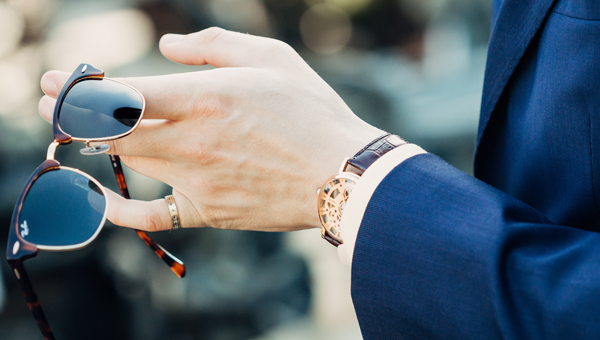Editor’s Note: This is a guest post by Louis Chew of Constant Renewal.

Not long ago, I tried assearing some of my possessions. It didn’t go well.
As I went through some old books and notes from school, I wondered to myself if I’d ever use them again. Deep down, I knew there was no chance I’d ever read the same books I enjoyed as a teenager. Still, I kept them. I reasoned with myself that maybe someday someone I knew would need them.
It’s safe to assume that it’s extremely unlikely that someday will ever arrive. The truth is I don’t need those books anymore. Neither did I want them anymore. Yet, I still couldn’t get rid of them. It just feels right to keep those items in my life.
I’m probably not alone in this. This thought process is something that most of us go through whenever it comes to our possessions. Some call it sentimental value. But the better answer is probably found in economics and psychology.
The Endowment Effect
In the 1970’s, psychologist Richard Thaler noticed a weird pattern.
A man who bought a bottle of wine for $5 a few years ago was offered $100 by the wine merchant to buy the bottle back. This was a fair price that the bottle would probably fetch in an auction. But the man declined to sell. When offered a chance to buy a similar bottle from the wine merchant for $100, the man also refused. The man didn’t necessarily appreciate the wine, but he was still unwilling to sell at that price.
This wasn’t an isolated incident; in fact it’s all around us. The Economist recently published an article that surveyed how much people were willing to pay for legroom in an airplane. When told they did not have an automatic right to decline, but would have to negotiate for it, the recliners were only willing to pay $12 on average for this comfort. But when asked how much they would need to be paid to give up their own legroom, they required on average of $39.
The inconsistency is revealing. Psychologists call this the Endowment effect: it’s the tendency for us to overvalue things we own. It explains why we are so unwilling to give something up once we have ownership of it.
At first, the researchers thought that this was a classic case of loss aversion, where we feel the pain of losing something more strongly than the pleasure of gaining something.
That sounds logical, but there’s a more insidious reason. Psychologists have also concluded that this overvaluation may stem from our sense of ownership itself. We value something more simply because it is ours. If we own a car, laptop, or watch of a certain model, we would similarly overvalue that same object owned by someone else because we own one ourselves.
Fighting The Endowment Effect
The Endowment Effect often goes unnoticed by us in most scenarios. What can we do then to counter this phenomenon? Here are three strategies you can apply:
Ask yourself: how much would I pay for this if I didn’t already own it? More often than not, you’ll find that the answer is nothing. If that’s the case, it’s a clear sign you value an item not because of its extrinsic or intrinsic value, but simply because of the endowment effect.
Consider the utility of the item. How much do you really need this item? The 80-20 principle holds true for our possessions as well: 80% of the utility we get comes from 20% of the possessions we own. Is this item adding value or simply creating clutter?
Borrow and don’t own. Luxury brands often offer customers a fitting, trial, or a test of their product. We take advantage of this offer because it’s free. But what we don’t realize is that the endowment effect is already beginning to influence our decisions: we feel like we own that dress or car we’re trying out.
It’s little wonder we walk out of stores with new possessions and less money in the bank more often than we like. If you want to try out a product, borrow it from a friend. This way, the obligation to return the borrowed item will prevent you from holding onto it indefinitely.
The endowment effect takes a larger psychological toll on us than we realize. Every year, we go through the same process of cleaning and figuring out where to store our possessions. Don’t let this happen to you. Take the time to solve this problem once and for all. It’s far better to de-own than declutter.
The cost of ownership is often greater than we think. But that’s not all. The cost and value of things become great only because we own it. And the more we recognize this, the more we’ll feel the liberation of less.
***
Louis Chew blogs at Constant Renewal where he inspires others to overcome mental barriers and fears to live their best life.
from Becoming Minimalist https://ift.tt/2KDkCtt
Aucun commentaire:
Enregistrer un commentaire